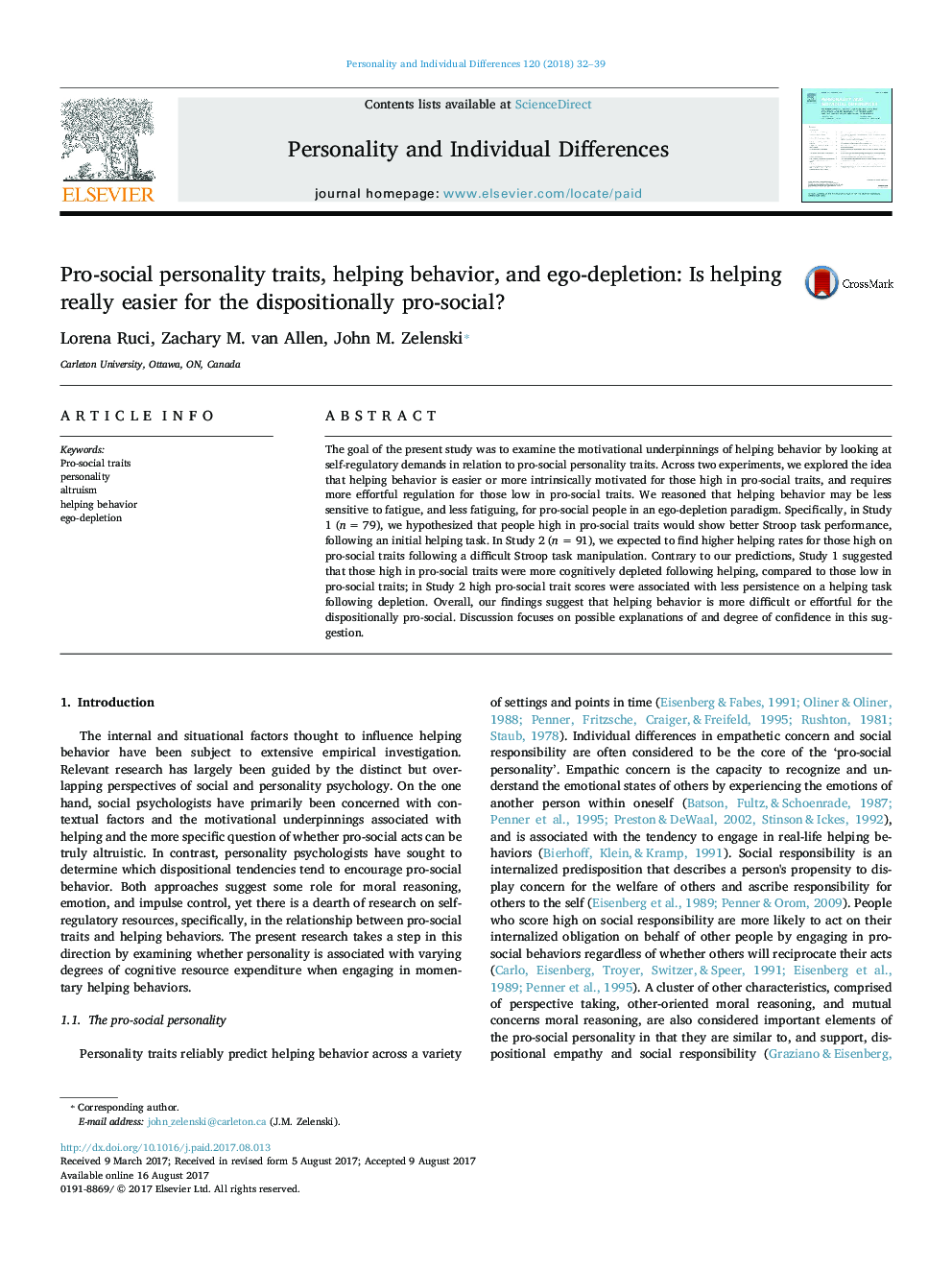| Article ID | Journal | Published Year | Pages | File Type |
|---|---|---|---|---|
| 5035513 | Personality and Individual Differences | 2018 | 8 Pages |
â¢We examine links among pro-social traits, helping behavior, and ego-depletion.â¢Highly pro-social people appeared more depleted after helping (Study 1).â¢Highly pro-social people helped less following a depletion manipulation (Study 2).â¢We speculate on the causes and robustness of these counter-intuitive results.
The goal of the present study was to examine the motivational underpinnings of helping behavior by looking at self-regulatory demands in relation to pro-social personality traits. Across two experiments, we explored the idea that helping behavior is easier or more intrinsically motivated for those high in pro-social traits, and requires more effortful regulation for those low in pro-social traits. We reasoned that helping behavior may be less sensitive to fatigue, and less fatiguing, for pro-social people in an ego-depletion paradigm. Specifically, in Study 1 (n = 79), we hypothesized that people high in pro-social traits would show better Stroop task performance, following an initial helping task. In Study 2 (n = 91), we expected to find higher helping rates for those high on pro-social traits following a difficult Stroop task manipulation. Contrary to our predictions, Study 1 suggested that those high in pro-social traits were more cognitively depleted following helping, compared to those low in pro-social traits; in Study 2 high pro-social trait scores were associated with less persistence on a helping task following depletion. Overall, our findings suggest that helping behavior is more difficult or effortful for the dispositionally pro-social. Discussion focuses on possible explanations of and degree of confidence in this suggestion.
